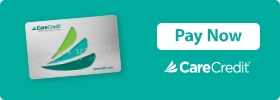Shingles Post-Herpetic Neuralgia Treatment in Mountain View
![]() If you are seeking effective treatment for shingles or post-herpetic neuralgia in the Mountain View area, trust our pain management specialists at Allied Pain & Spine Institute.
If you are seeking effective treatment for shingles or post-herpetic neuralgia in the Mountain View area, trust our pain management specialists at Allied Pain & Spine Institute.
Shingles or post-herpetic neuralgia is a condition that causes intense pain. The pain can be localized to one side of the body or a general region, such as the head and neck. The condition is also identified by a rash or stripe of blisters that lines up in an area of the body, usually around the torso. Shingles is most common in people over the age of 50 and in people who have disorders of the immune system, such as an autoimmune disease, HIV/AIDS, or cancer. Shingles is also more likely to develop in someone who is on a long-term treatment that involves the use of steroids.
Causes
Shingles is the result of infection with varicella zoster, or chickenpox. Varicella zoster is one of the human herpes viruses and most often infects people as children, although today’s generation of youngsters can be vaccinated against chickenpox. Anyone who had chickenpox can get shingles later in life. After the chickenpox illness resolves, some of the viruses remain hidden away in the body’s nerve endings. A person who has an active shingles infection can spread the virus to someone else, causing them to get chickenpox. So a grandparent with shingles should avoid contact with a newborn baby who has not yet been vaccinated for the disease.
Symptoms
The most common symptoms of shingles include a feeling of pain, burning, numbness, or tingling of the skin. These feelings are usually localized to a specific part of the body, such as the right side of the head and face. Sensitivity to touch, including a touch from a person and the touch of fabric of a person’s clothing are also common symptoms. A person with shingles may also go on to develop a rash and fluid filled blisters which become increasingly painful. A few people experience fever, itching, headaches and sensitivity to light. People who have shingles may have fatigue that can last for several weeks or even months after the rash and blisters have gone away.
Treatments
![]() There is no cure for shingles once a person has it, but there are many treatments that can help to shorten the duration of the illness and lessen its symptoms to make the pain more bearable. Some medications may be prescribed to treat shingles and post-herpetic neuralgia.
There is no cure for shingles once a person has it, but there are many treatments that can help to shorten the duration of the illness and lessen its symptoms to make the pain more bearable. Some medications may be prescribed to treat shingles and post-herpetic neuralgia.
Some patients cannot take these medicines or prefer other forms of treatment. One option to consider is percutaneous electronic nerve stimulation (PENS). This is a procedure in which the physician uses electronic nerve stimulation to reduce the perception of pain. Another good method to try is acupuncture, as this helps to balance the body’s energy and is a proven reliever of both chronic and acute pain. Acupuncture can also help to reduce stress, and a reduction of stress can help to minimize the perception of pain from shingles. Injections of anti-inflammatory drugs such as steroids are also helpful for combating the intense pain of shingles.
If you suffer from pain due to shingles, contact us today to schedule an appointment at Allied Pain & Spine Institute in Mountain View.

